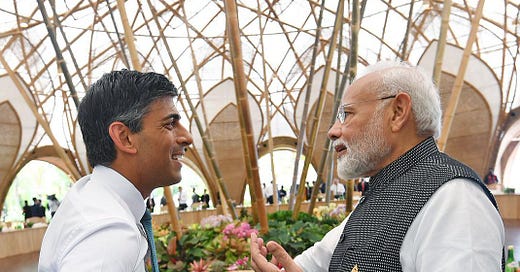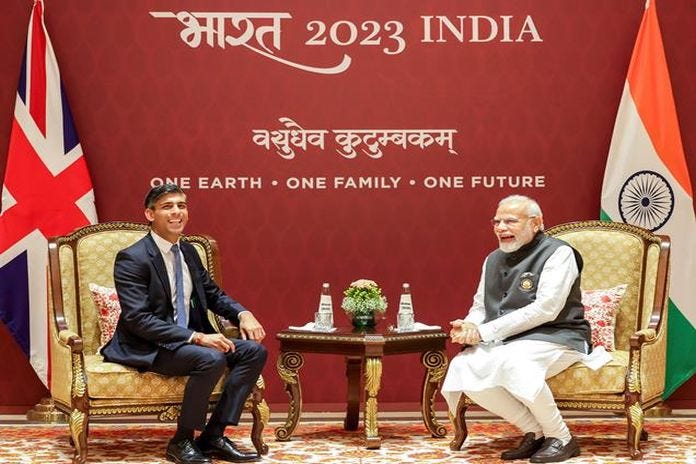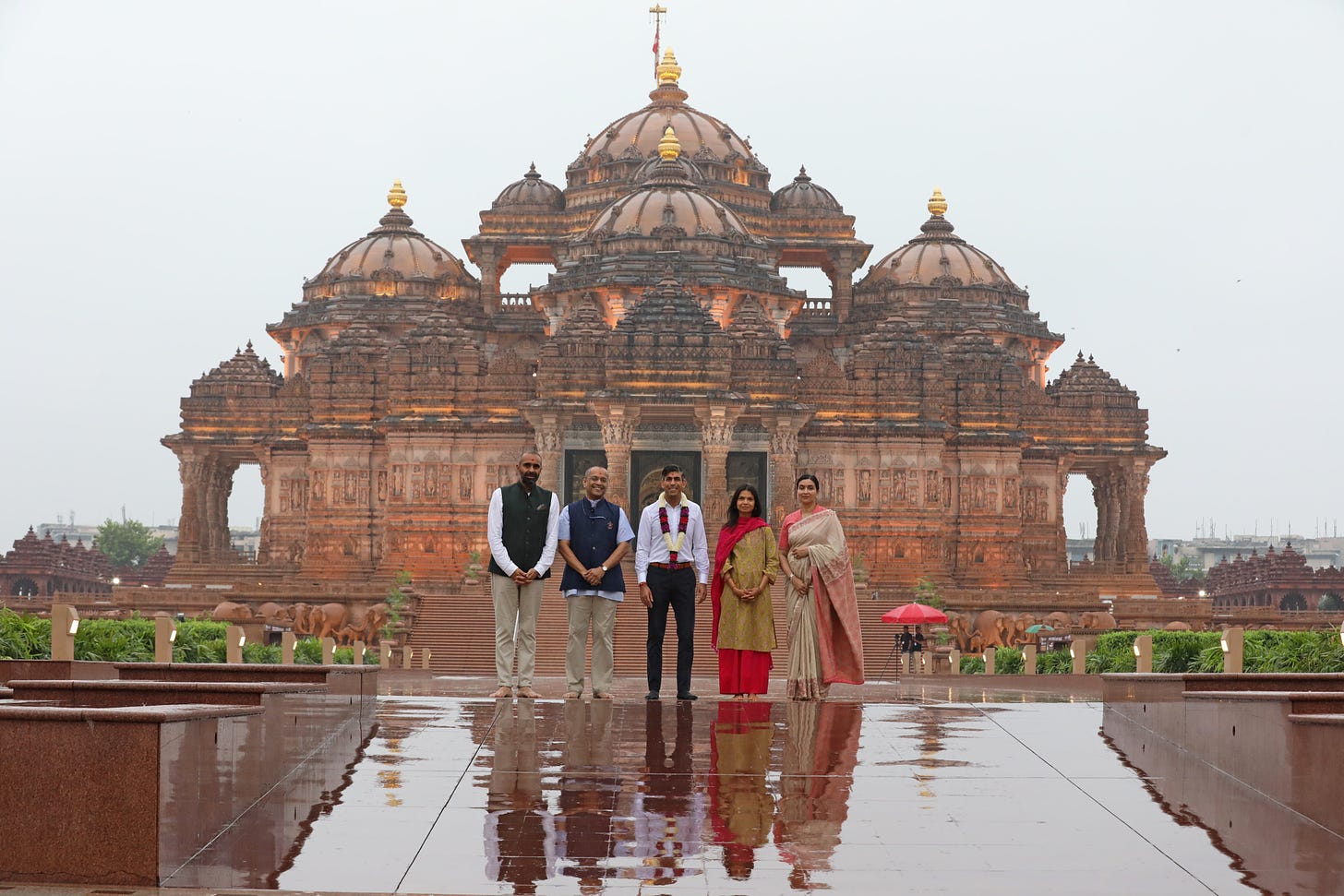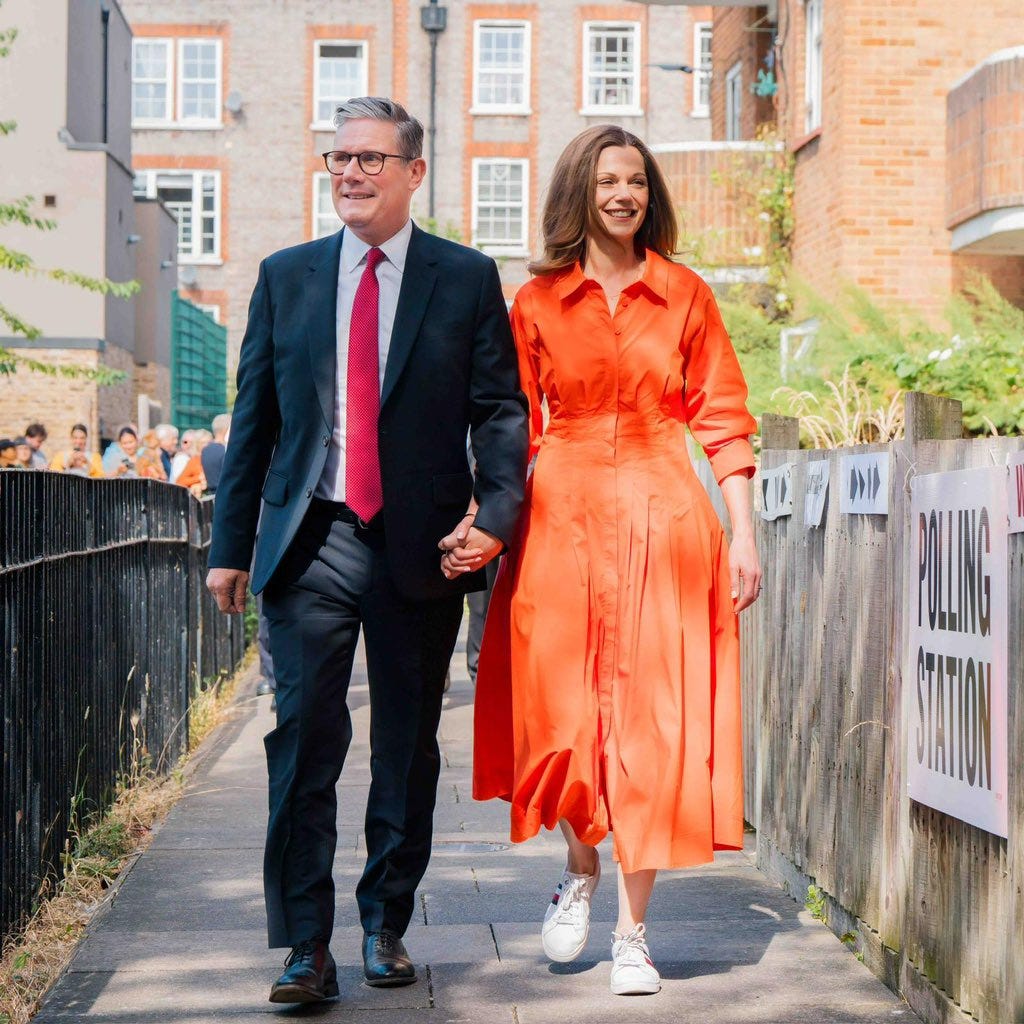UK-India Relations: The Highs and Lows with Rishi Sunak
The Fall of the Conservative Party— Rishi Sunak shown the door.
Bilateral Ties— Satisfactory but not Satisfying
The 4th July UK elections marked a tectonic shift in the political landscape, with the Labour Party sweeping to power and the Conservative Party experiencing a debilitating debacle. This change signals a new direction for the UK, both domestically and in its international relations. The Labour Party's victory reflects widespread public desire for change and new leadership after years of shoddy Conservative governance, or rather, misgovernance.
In this brief article, while we extend our heartiest felicitations to the Labour Party on its scintillating victory, we essentially enumerate the highs and lows of India-UK relations during the tenure of Rishi Sunak as the Prime Minister—a man whom many Indians regarded as “one of our own.”
PM Narendra Modi's Message to Rishi Sunak
In the aftermath of the election results, Indian Prime Minister Narendra Modi extended his best wishes to Rishi Sunak. PM Modi's tweet highlighted the positive personal relationship between the leaders and underscored the enduring connection between India and the UK. His message expressed hope for continued collaboration and progress in bilateral ties despite the political shift.
Rishi Sunak's Tenure and UK-India Relations: A Mixed Legacy
High Points
Historic Appointment: Rishi Sunak's tenure as the first British Asian and Hindu Prime Minister was a historic milestone that resonated positively in India. His appointment was celebrated by many Indians, symbolising progress and diversity in UK politics.
Strategic Partnership Commitment: Sunak consistently emphasised the importance of the UK-India partnership, identifying India as a key strategic partner. He prioritised the UK-India Free Trade Agreement (FTA), seeing it as a crucial element of his government's agenda.
Significant Visit: Sunak's visit to India in November 2022 for the G20 summit was his first bilateral visit outside Europe as Prime Minister. This visit signalled the high priority he placed on India within his foreign policy framework.
Progress on FTA Negotiations: During his visit, substantial progress was made on resolving critical issues in the FTA negotiations, with a mutual goal of finalising the deal by the end of 2023. A successful FTA could significantly enhance trade and investment between the two nations.
Low Points
Structural Challenges: Despite the positive optics, significant structural challenges remained in the UK-India relationship that Sunak's leadership alone could not address. Issues such as visa restrictions, trade barriers, and the colonial past continued to strain ties.
Political Instability: The frequent changes in the UK Prime Minister's office created instability, making it difficult to maintain momentum on important bilateral initiatives like the FTA and the 2030 Roadmap. The uncertainty surrounding the 2024 UK general election further complicated this dynamic.
Competing Foreign Policy Priorities: Sunak's administration faced numerous foreign policy challenges, including the war in Ukraine and post-Brexit relations with the EU, which often diverted attention from the India partnership. Achieving concrete outcomes required sustained high-level engagement, which was challenging given these competing priorities.
Towards New Beginnings: A Renewed Opportunity for UK-India Relations
Rishi Sunak's premiership injected new energy into the UK-India relationship, with significant symbolic gestures and strategic commitments. However, turning these gestures into substantial outcomes proved challenging. The Labour Party's victory introduces a new chapter in UK politics, potentially offering fresh opportunities and approaches to strengthen UK-India ties.
PM Modi was also quick to congratulate Labour Party Leader Keir Starmer on his remarkable victory in the UK general elections. In his message, Modi expressed his eagerness for positive and constructive collaboration to further strengthen the India-UK Comprehensive Strategic Partnership in all areas, fostering mutual growth and cooperation. The upcoming period will be crucial in determining how these bilateral relations evolve under new leadership. As we look to the future, it is essential to take up from where we left off and embrace US Vice President Kamala Harris's favourite quote: "What can be, unburdened by what has been."
If you believe this article would interest someone you know, please feel free to share it anonymously (for us), using any platform that you prefer.








